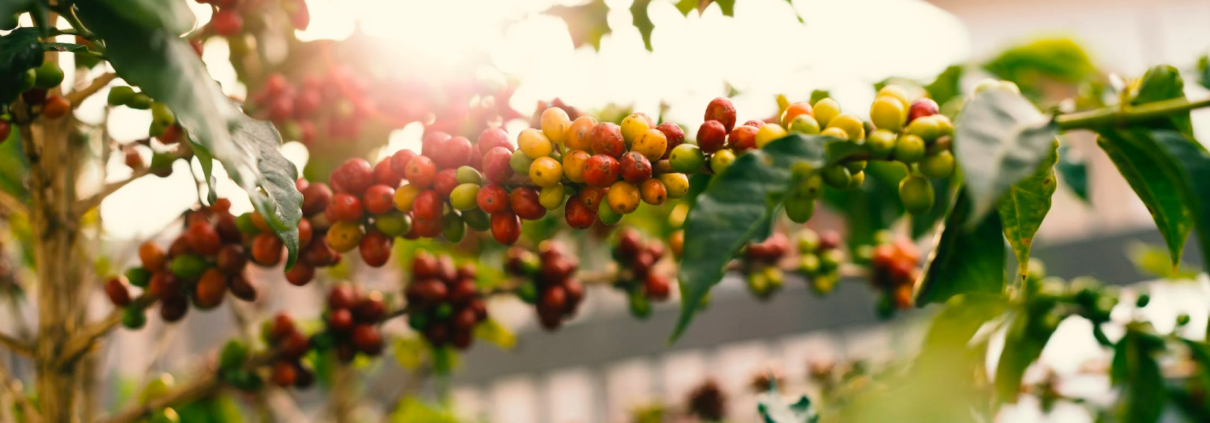Where’s the coffee at the AGRF?

Latest posts
Share:
‘Where’s the coffee?’ was a question I overheard as a leading farmers representative walked past me talking with a colleague at the AGRF summit 2022 in Kigali this week.
Africa’s premier forum for agriculture and food systems is a hard but rewarding set of meetings and sessions.
The AGRF is impressive and valuable because it is well attended. It comprises many of the leading players on food systems transformation in Africa. A networking frenzy is the result as all of us participants make up for lost human contact due to Covid19 in recent years. Handshakes are in plenty, and rooms are abuzz with groups clustered together.
Meeting so many passionate people in person and exploring what is working and not working with Africa’s food systems gives us all energy for the road ahead. What is clear is that we have a long way to go but there is no shortage of positive stories of progress to build the spirit.
Four years ago, also in Kigali, I attended my first AGRF. While it was a good event there were some important aspects that received little attention.
So, what’s different in 2022?
Nutrition is a big focus
Well for one, nutrition has a much higher profile with several dedicated sessions. There are regular references to the importance of good nutrition from notable policymakers and influencers on the continent, including the African Union Commissioner Lionel Sacko, AGRA President Agnes Kalibata, leaders of international organisations, as well as first ladies across the continent including Her Excellency Jeannette Kagame here in Rwanda.
This is helped by the AU designating 2022 as the year of nutrition with the goal of “Strengthening Resilience in Nutrition and Food Security on the African Continent”. This is great. I’ve been a passionate supporter on advancing good nutrition for over 15 years. If anything, we need to do more.
Climate and nature counts
Second, I’ve noticed a big shift in emphasis on how to deliver improvements in food systems (particularly food production) that can contribute to climate resilience and stronger nature outcomes. The environment now appears to matter to agriculture policymakers and influencers.
Hooray! This is huge.
I think it reflects in part some encouragement to focus on the issue by AGRF’s partners as well as global climate discourse and the upcoming COP 27 in Africa.
A new generation of leaders is emerging
As an action-oriented person, a truly inspiring element of the AGRF this year is a new force for change on the continent. I’m referring to a powerful and fresh generation of leaders for transforming national food systems in Africa.
While it is still early days, the African Food Fellowship, and the Centre for African Leaders in Agriculture (CALA) are impressive as they work to empower food systems leaders for the journey ahead. I enjoyed meeting many CALA delegates and African Food Fellows.
This force of leaders is essential in the months, years, and decades ahead if the talk of transforming food systems is to turn into reality. More of them are needed. Food Systems Leaders that can grow businesses, lead civil society, and shape government policy and support services with a systems mindset are the catalyst to the changes that the world needs.
Already, they are seeking new forms of collaboration and are better at overcoming barriers to change. The bigger shared picture that binds food systems leaders is a food system that delivers good outcomes for people in terms of incomes and nutrition, while also looking after the climate and nature. For too long there has been a mindset of seeking one outcome to the detriment of the others.
As I sit on a KQ flight from Kigali to Nairobi, I find myself asking the question: “Where’s the coffee?” And I quietly appreciate all those people that work hard to bring us the things we value and often take for granted.
The African Food Fellowship
The African Food Fellowship is a practical, collaborative, and visionary leadership initiative for inclusive and regenerative food futures on the continent.
Wageningen University & Research and Wasafiri Consulting initiated this fellowship to help deliver progress promised in the 2014 Malabo Declaration, which aims to end hunger on the continent by 2025, and to promote intra-Africa food exchange through the continental free trade area.
The initiative enjoys support from the IKEA Foundation.








